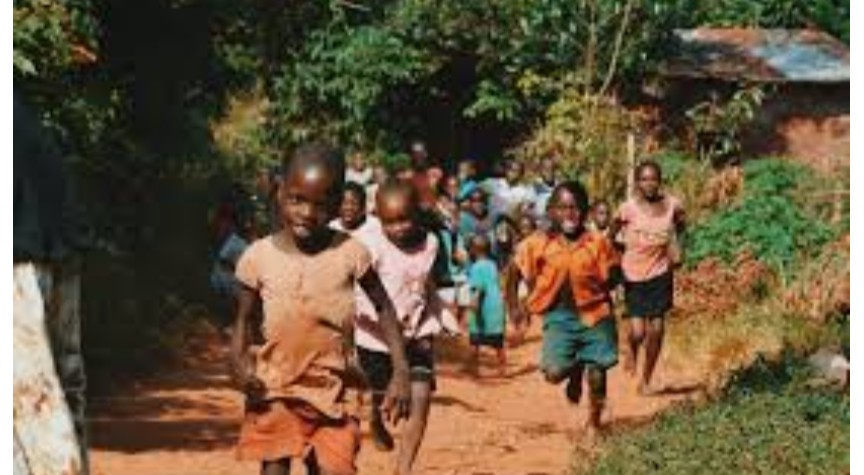This comprehensive 5-day training course equips participants with the essential knowledge and skills to protect children in humanitarian emergencies. Participants will explore the unique vulnerabilities of children in crisis situations, learn how to identify and respond to child protection risks, and understand the legal and ethical frameworks that guide child protection work. The course emphasizes practical application, combining theoretical frameworks with real-world case studies, interactive exercises, and the development of a child protection plan.
The training covers a wide range of crucial topics, including the humanitarian context and child protection, international legal frameworks, child protection principles, child protection risks and violations, needs assessment, case management, psychosocial support, family tracing and reunification, alternative care, education in emergencies, and coordination and collaboration. Participants will develop the competence and confidence to contribute to effective child protection interventions in humanitarian emergencies.
Who should attend the training
- Humanitarian workers
- Child protection specialists
- Social workers
- Health professionals
- Education professionals
- Camp managers
- Government officials
- Anyone involved in humanitarian response
Objectives of the training
- Understand the humanitarian context and its impact on children
- Learn about international legal frameworks for child protection
- Identify and analyze child protection risks and violations
- Conduct needs assessments and develop response plans
- Implement case management procedures
- Provide psychosocial support to children
- Support family tracing and reunification
- Establish alternative care arrangements
- Promote education in emergencies
- Coordinate and collaborate with partners
Personal benefits
- Enhanced understanding of child protection in emergencies
- Improved ability to identify and respond to child protection risks
- Increased skills in case management and psychosocial support
- Greater awareness of ethical considerations
- Professional development and career advancement opportunities
Organizational benefits
- Improved organizational capacity to protect children
- Strengthened child protection programs and interventions
- Enhanced collaboration with partners
- Increased impact on child protection outcomes
- Greater organizational credibility
Training methodology
- Interactive lectures and presentations
- Case studies and scenario discussions
- Group exercises and practical demonstrations
- Simulation exercises
- Child protection plan development
- Q&A sessions
Course duration: 5 days
Training fee: USD 1300
Module 1: The Humanitarian Context and Child Protection
- The Impact of Humanitarian Emergencies on Children
- Children's Unique Vulnerabilities in Crisis
- International Legal Frameworks for Child Protection (CRC, IHL, Refugee Law)
- Child Protection Principles (Best Interests of the Child, Non-Discrimination, Participation)
- The Role of Child Protection in Humanitarian Response
Practical session: Analyzing a case study of a humanitarian emergency and its impact on children.
Module 2: Child Protection Risks and Violations
- Separation and Unaccompanied Children
- Recruitment and Use of Children in Armed Conflict
- Sexual and Gender-Based Violence (SGBV)
- Child Labor
- Child Marriage
- Psychosocial Distress
- Neglect and Abuse
Practical session: Identifying and analyzing child protection risks in a specific scenario.
Module 3: Needs Assessment and Response Planning
- Child Protection Needs Assessment Methodologies
- Data Collection and Analysis
- Developing a Child Protection Response Plan
- Prioritizing Child Protection Interventions
- Resource Mobilization
Practical session: Developing a child protection needs assessment plan.
Module 4: Case Management
- Case Identification and Referral
- Case Planning and Implementation
- Case Monitoring and Evaluation
- Documentation and Data Management
- Confidentiality and Data Protection
Practical session: Role-playing a child protection case management scenario.
Module 5: Psychosocial Support
- Understanding Psychosocial Distress in Children
- Providing Psychosocial First Aid
- Child-Friendly Spaces and Activities
- Referral to Specialized Mental Health Services
- Self-Care for Child Protection Workers
Practical session: Practicing psychosocial first aid techniques.
Module 6: Family Tracing and Reunification
- Tracing Methodologies
- Working with Families
- Best Interests Determinations
- Alternative Care Arrangements
- Repatriation and Reintegration
Practical session: Discussing the challenges of family tracing and reunification in emergencies.
Module 7: Alternative Care
- Types of Alternative Care (Foster Care, Kinship Care, Residential Care)
- Standards of Care
- Best Interests Assessments
- Monitoring and Evaluation of Alternative Care Arrangements
- Transitioning from Emergency to Long-Term Care
Practical session: Developing a plan for alternative care arrangements in an emergency.
Module 8: Education in Emergencies
- The Importance of Education in Emergencies
- Safe Learning Environments
- Curriculum and Materials
- Teacher Training and Support
- Access to Education for All Children
Practical session: Discussing the challenges of providing education in emergencies.
Module 9: Coordination and Collaboration
- The Humanitarian Coordination System
- Child Protection Cluster
- Working with Partners (UN Agencies, NGOs, Government)
- Information Sharing and Data Management
- Advocacy and Resource Mobilization
Practical session: Developing a coordination plan for child protection activities.
Module 10: Developing a Child Protection Plan
- Analyzing the Child Protection Situation
- Defining Goals and Objectives
- Developing a Comprehensive Plan
- Identifying Resources and Partnerships
- Monitoring and Evaluating the Plan
Practical session: Developing a child protection plan for a specific emergency context.
Trainer Experience
Our trainers are highly experienced professionals with extensive expertise in child protection in humanitarian emergencies. They have a proven track record of delivering engaging and effective training programs. They possess in-depth knowledge of child protection principles, international law, and best practices.
Quality statement
We are committed to providing high-quality training that meets the needs of our participants. Our training courses are designed to be practical, relevant, and engaging. We strive to create a learning environment that fosters collaboration and knowledge sharing.
Tailor-made courses
We offer tailor-made training courses to meet the specific needs of organizations. Contact us to discuss your requirements.
Payment
Payment is due a week before the training starts.
Accommodation and Airport pick-up
We can assist with arranging accommodation and airport pick-up for participants. Please contact us for details.

